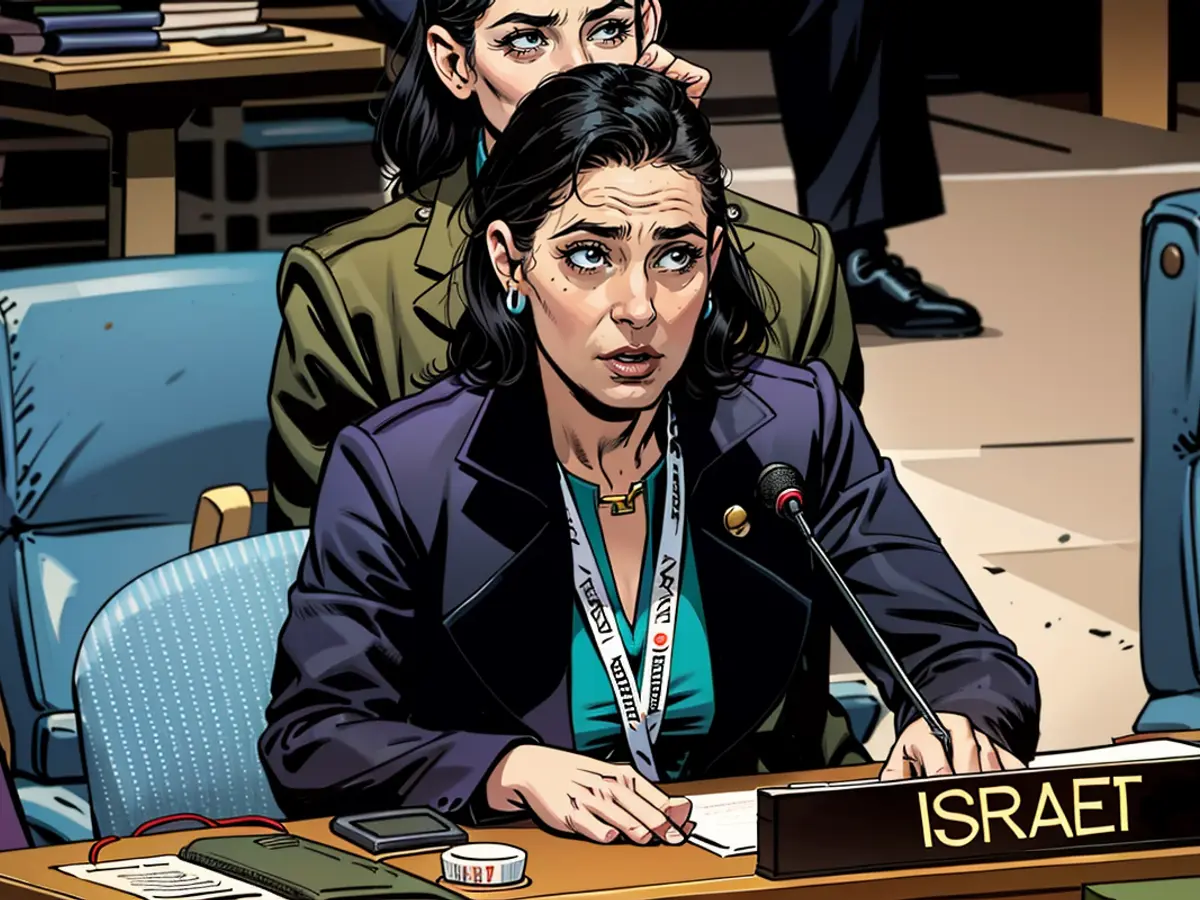Israel declares persistence in Gaza operations following UN Security Council's endorsement of ceasefire plan.
The Israeli ambassador to the United Nations, Reut Shapir Ben-Naftaly, stressed at a UN Security Council meeting that her country aims to "eliminate any future threat from Gaza." She claimed the conflict could not conclude until all abductees were returned and Hamas' military prowess was dismantled. Ben-Naftaly accused Hamas of using protracted negotiations as a strategy to delay.
Following a vote in favor of Monday's U.S.-proposed resolution by 14 of the 15 UNSC council members (with Russia abstaining), this marked the first time the council had endorsed a plan to put an end to the war. As Israel is not a UNSC member, a vote wasn't cast.
The three-phased peace agreement, which outlines conditions meant to lead to the eventual release of the remaining hostages in exchange for a permanent ceasefire and the retreat of Israeli troops, was initially proposed by U.S. President Joe Biden on May 31.
The resolution's approval means the UNSC now concurs with other key global organizations in endorsing the U.S. strategy, intensifying the demand for both Israel and Hamas to end the dispute.
Hamas' and Israel's responses
Hamas expressed support for the resolution, promising cooperation with mediators on measures, such as the withdrawal of Israeli troops from Gaza, prisoner exchange, the return of residents to their homes, and rejection of border modifications or land reclamation in Gaza.
The resolution indicates Israel has accepted the plan, while U.S. officials reiterated that Israel had consented. However, despite this, and comments from Israeli Prime Minister Benjamin Netanyahu declaring the war would not finish until Hamas was defeated, Israeli officials also mentioned the desire to fulfill the ceasefire proposal.
During the UN General Assembly, the U.S. ambassador, Linda Thomas-Greenfield, assured that the U.S. would ensure Israel honors its commitments, whilst Egypt and Qatar will oversee Hamas' compliance.
"The fighting can stop today if Hamas accepts the deal," Thomas-Greenfield declared.
Though negotiations to implement the plan have commenced, both Israel and Hamas have yet to agree on its terms.
The agreement is structured into three stages: an initial ceasefire, the freeing of Israeli prisoners in exchange for Palestinian detainees' release, and, ultimately, a permanent end to hostilities and the withdrawal of Israeli troops from Gaza, among other conditions.
The ambassador confirmed the agreement's goal to avoid any border modifications in Gaza and maintained the commitment to a two-state solution.
The Palestinian envoy to the UN, Riyad Mansour, affirmed the Palestinian Authority's approval of the plan as positive progress but emphasized that Israel had to implement its terms. "We want a ceasefire," he stated, pointing out that "the responsibility lies with the Israeli side to implement this resolution."
US encourages Israeli support for the deal
In an effort to persuade Netanyahu, U.S. Secretary of State Antony Blinken urged him during a meeting in Jerusalem that the proposal could "bring tranquility to Israel's northern border and foster deeper regional integration," per a State Department statement.
After the resolution's adoption, Blinken met with Israeli Defense Minister Yoav Gallant, who was acknowledged for Israel's willingness to conclude the deal and reminded of Hamas' responsibility to accept.
Read also:
Despite the UN Security Council's endorsement of the ceasefire plan, Israeli ambassador Ben-Naftaly highlighted the country's desire to eliminate any future threats from Gaza, which is located in the Middle East. With Hamas' support for the resolution and the announcement of negotiations, tensions between Israel and Hamas continue, as both sides strive to meet the conditions outlined in the three-phased peace agreement, particularly regarding the release of prisoners and the retreat of Israeli troops from Gaza.







